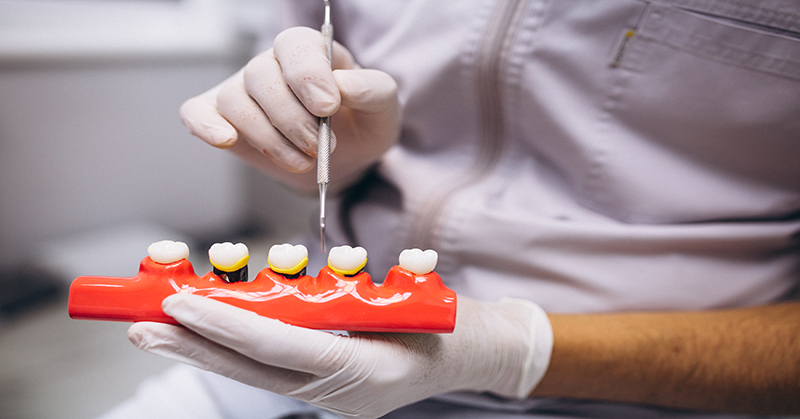Does Medicare Cover Dental Implants in 2024?
Medicare is an essential service for seniors, covering critical aspects of healthcare such as hospital stays, hospice care, and doctor services. However, when it comes to dental implants, a procedure known for its high costs, many beneficiaries find themselves questioning their coverage options. If you're contemplating this procedure, it's vital to know whether your plan offers coverage. This article aims to shed light on the coverage of dental implants under Medicare, focusing on Medicare Advantage plans.What Are the Possible Risk Or Side Effects for Dental Implants?
updated on November 15, 2023
Dental implants provide an excellent way to replace missing teeth and restore your smile. But as with any medical procedure, there are possible risks and side effects to consider before undergoing implant surgery. In this article, we aim to provide a comprehensive overview of dental implants - what they are, who is a suitable candidate, and most importantly, the potential risks and complications that can arise. By understanding both the benefits and possible downsides of implants, you can make a fully informed decision about whether they are the right choice for your individual needs and health profile.
We will explain the dental implant process, outline the typical patient profile, and delve into side effects like infection, nerve damage, and graft failure. Our goal is to offer transparent facts so readers can carefully weigh the pros and cons of implants for their situation. Evaluating the risks allows for optimal planning and preparedness in advance of embarking on this tooth replacement process.
What are Dental Implants?
Dental implants are artificial tooth roots made of biocompatible titanium that are surgically inserted into the jawbone as a permanent anchor for replacement teeth. The implant fuses with the jawbone in a process called osseointegration. A dental crown is then attached to the implant post to complete the tooth restoration. Implants not only replace lost teeth but also help prevent bone loss in the jaw. They are an ideal tooth replacement option that allows patients to eat, speak, and smile naturally.
Who is a Good Candidate for Dental Implants?
Ideal candidates for dental implant surgery include individuals in good general and oral health with sufficient jawbone density and one or more missing teeth. Candidates should have healthy gums and practice excellent oral hygiene. They should also commit to regular dental visits to properly maintain implants. Heavy smokers and people with certain uncontrolled medical conditions may not be suitable candidates.
Potential Risks and Side Effects
While dental implants have a high success rate when properly placed, there are potential side effects to consider:
-
Infection - An infection may develop after surgery, causing persistent pain, swelling, and discharge. Antibiotic treatment is needed to resolve the infection.
-
Pain and Discomfort - It is common to experience some degree of pain and discomfort after the procedure that can be managed with medication.
-
Nerve Damage - In rare cases, implants placed too close to nerves can cause numbness or tingling in the lips, tongue, or chin. This usually resolves, but may be permanent.
-
Sinus Problems - Placing implants in the upper jaw can protruding into the sinus cavity, leading to sinusitis or congestion. This is more likely if there is insufficient bone.
-
Allergic Reactions - Allergic reactions to metals like titanium are very rare but can cause rashes, swelling, and other symptoms after surgery.
-
-
Implant Failure - While dental implants have over a 95% success rate, failure is still possible due to factors like infection, poor osseointegration, or excessive biting forces. This may require implant removal.
-
Aesthetic Issues - In some cases, the implant crown may not match adjacent teeth exactly in color, shape, or alignment, requiring replacement.
-
Bone Loss - If poor oral hygiene leads to gum disease and infection around an implant, bone loss can occur causing implant failure.
With proper placement by an experienced dentist along with excellent oral hygiene, most patients experience successful, complication-free dental implant treatment. However, it is important to consider the possible risks before deciding whether dental implants are the right choice. Discussing your health history thoroughly with your dentist can help minimize these risks. While infrequent, being aware of the potential side effects can help make dental implant surgery a smooth and pleasant experience.
-

free&low-cost dental clinics
View Now
dental health

Dental Implants

Dental Implants
How Can I Get Government Grants for Dental Implants?
Dental implants are a sought-after solution for missing teeth, offering a long-term fix that can significantly improve quality of life. However, the cost of dental implants can be prohibitive for many. Understanding government programs and other grants available for dental care, particularly dental implants, can help bridge this financial gap. In this guide, we will walk you through some government assistance and grant programs aimed at making dental implants more accessible.
Dental Implants
What Are the Possible Risk Or Side Effects for Dental Implants?
Dental implants provide an excellent way to replace missing teeth and restore your smile. But as with any medical procedure, there are possible risks and side effects to consider before undergoing implant surgery. In this article, we aim to provide a comprehensive overview of dental implants - what they are, who is a suitable candidate, and most importantly, the potential risks and complications that can arise. By understanding both the benefits and possible downsides of implants, you can make a fully informed decision about whether they are the right choice for your individual needs and health profile.
Dental Implants
How to Find Dental Implants for Low Income
Dental implants are popular and effective solutions for replacing missing teeth. However, they can be quite expensive. For instance, one single implant can cost about $1500 in the US.If you're looking for ways to make dental implants more affordable, this article will provide you with five practical strategies to save on cost.
Dental Implants
Why Are Implants So Expensive?
According to recent statistics, tooth loss is a prevalent issue, especially among older individuals. Adults between the ages of 20 to 64 have an average of 25.5 remaining teeth. However, factors such as age, smoking, lower income, and education level can contribute to a higher likelihood of tooth loss. In this article, we will explore dental implants in detail through the following aspects:
Dental Implants
How to Get Your All-On-4 Dental Implants Without Breaking the Bank
In the United States, the cost of All-On-4 dental implants can vary significantly depending on your location. For instance, the cost in different states ranges from around $12,000 to $39,200 per arch. When seeking affordable options domestically, it's important to explore various clinics and compare their pricing. Additionally, some dental practices might offer flexible payment plans or dental loans to help manage the costs.







